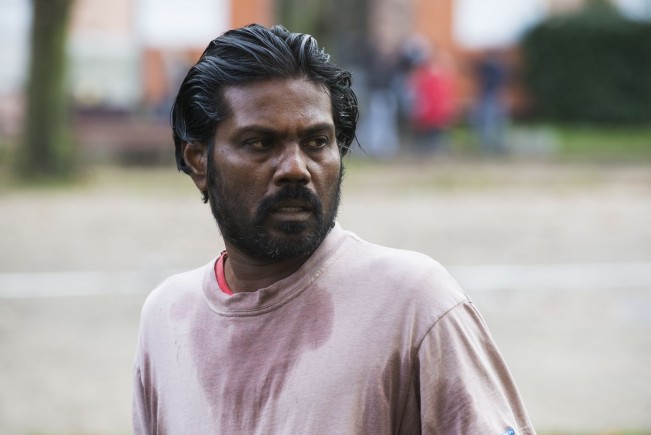By Jake Howell jake.howell@utoronto.ca
Cannes 68: A Wrap
It was a Festival divided from the outset. Critical consensus was out the window from Film 1 to Film 19—not that we’re looking for that—but it made getting a handle on the Competition vibe the trickiest it’s been since 2010.

But the 68th Festival de Cannes wrapped today just the same, with Joel and Ethan Coen’s jury giving Jacques Audiard a Palme d’Or for Dheepan, a tiger-out-of-jungle immigrant drama that feels like a Parisian History of Violence. Audiard is worthy of a Palme; A Prophet and Rust and Bone are both excellent films that could have won the same title.
But Audiard’s latest rough-and-tumble drama gets in quickly with its emotional claw: actor Antonythasan Jesuthasan plays the title role with a complex sadness. He plays a former Tamil Tiger man caught in a bad neighborhood with his family to feed, and there’s a strong motif related to elephants in the film. Audiard continues to cut away to shots of the endangered species—and it recalls the sense that Dheepan is one: gentle, emotional, but will charge when provoked.
Second place was to the remarkable Son of Saul, Laszlo Nemes’ feature debut that used a shallow focus 35mm aesthetic to capture the horrors of the Auschwitz Sonderkommando. It doesn’t need a Grand Prix to be remembered down the road, but this is a Good Call by the jury—this is art.
Stewing in an awkward third place bisque is Yorgos Lanthimos’ The Lobster, which had a great shot at something higher if its ending wasn’t marred by an exhaustion of ideas. There were some good laughs here, and Lanthimos is definitely operating on a level that remains something to write home about, but this win feels more to celebrate the film’s oddities—it stood out from the relatively safe Competition.
Hardcore cinephiles felt ripped off when favorite Hou Hsiao-hsien took home only Best Director for The Assassin, a wuxia drama that arrived on the Croisette after many years of production. It’s filled with rich photography that beguiled critics here, despite a story that left some confused.
The “Best Script” award at Cannes seems to be the strangest one to call—how can you comment on say, some Turkish screenwriting when you only speak English or French, really?—but it went to Michel Franco for Chronic, a film that takes Tim Roth’s male nurse character on a milk run of uncomfortable scenarios. I can see this, actually; a lot of the film’s dialogue takes place off screen, so you might not actually notice it as much as a normal shot-reverse-shot, but the voices are quite natural. But is the prize for believable dialogue or “emotional events that are hard to watch?” Tough call; either way, expect to either love or hate it—or, if you’re like me, walk out feeling punished and apathetic.
I’m pleased with the acting trophies this year, save for Emmanuelle Bercot in Mon Roi, a forgettable French romance. Bercot shares the Best Actress award with Rooney Mara’s tender turn in Carol (who will Harvey push for the Oscar, Blanchett or…?). Mara outclasses Bercot by a country mile, but I’m pleased Todd Haynes’ masterful new film got something to take home. Vincent Lindon, the spotlight show in Stephane Brize’s The Measure of a Man, was a sure bet for an acting prize outside of Tim Roth. Lindon plays a down-on-his-luck security guard who is forced to make some tough calls in the grey areas of a supermarket, and it’s a stirring performance.
But that’s it. It’s all over. Despite major scattershot impressions throughout the Festival, the films that remained afloat or alive in the conversation are, for the most part, the films that were given prizes—a silver lining, or perhaps validation. Thanks for reading.
Other awards:
Caméra d’Or: Land And Shade by Cesar Augusto Acevedo
Palme d’Or, Best Short Film: Waves 98 by Ely Dagher













